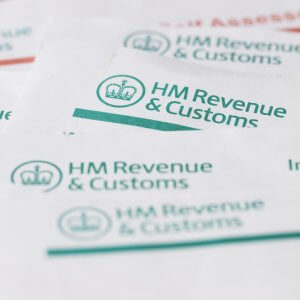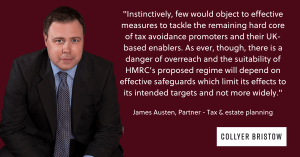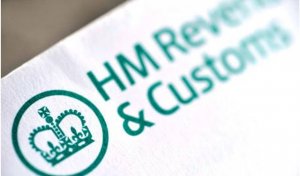- Tax disputes & investigations

Longer Reads
Is it illegal for me to pay my handyman in cash?
Partner James Austen responds to a Sunday Times’ reader inquiring about the legality of cash transactions.
1 minute read
Published 31 July 2023
Key information
- Specialisms
- Private Wealth
- Services
- Tax disputes & investigations
Is it illegal for me to pay my handyman in cash? Am I breaking the law paying in cash because I am facilitating tax evasion and leaving no paper trail? Would I be liable in any way if he gets found out by the tax authorities?
In short, it is not illegal to pay your handyman in cash. While the era of digital money makes cash transactions less frequent and the UK government has expressed concerns about the link between cash, tax evasion and the so-called hidden economy, requests for cash payments are not necessarily for nefarious reasons.
Possible “tax evasion” here might relate either to the handyman’s liability for income tax (or corporation tax if trading through a company) or VAT obligations, if relevant (broadly if his turnover exceeds £85,000 per annum).
The responsibility of declaring trading income falls on the handyman and not his customers. If he intentionally fails to declare his income to HMRC then that would, most likely, constitute tax evasion: it could (and should) trigger civil and/or criminal penalties for him. But unless the customer knowingly participates in a fraud, he or she would be innocent of any wrongdoing.
If the handyman is VAT registered he ought invariably to supply a valid VAT invoice for all work charged for. If he does so, a request for cash payment is unlikely to relate to tax evasion. But small businesses below the VAT registration threshold may — quite properly — not be registered for VAT and so not able to give a VAT receipt. If the trader operates through a UK company, the business’s VAT registration status should be clear from its website, for example.
So a request for payment in cash is not of itself necessarily a reliable indicator of tax evasion by the handyman. However, if the handyman linked payment in cash to an inducement — typically a reduction in his charges (often about 20 per cent — the present VAT rate) then the customer ought to be on notice of a possible tax fraud. In clear cases of knowing participation in egregious tax evasion, HMRC may be able to argue that those who actively facilitated the fraud should themselves share the responsibility for it.
But in circumstances where cash was paid but the handyman (unbeknown to his customer) decided not to declare the transaction, HMRC would pursue the handyman and not the consumer. If someone has reasonable grounds for concern that a person might not paying enough tax, an online report can be filed here.
As a result, for tax reasons, and for equally important non-tax considerations (e.g. in case poor workmanship comes to light later), it is always advisable for a tradesman’s clients to retain a signed receipt or a receipted invoice for all work carried out, whether or not the work was paid for in cash.
This article was first published on The Sunday Times in July 2023.
For more information, visit our Tax Disputes and Investigations page.
Related content
Longer Reads
Is it illegal for me to pay my handyman in cash?
Partner James Austen responds to a Sunday Times’ reader inquiring about the legality of cash transactions.
Published 31 July 2023
Associated sectors / services
Authors
Is it illegal for me to pay my handyman in cash? Am I breaking the law paying in cash because I am facilitating tax evasion and leaving no paper trail? Would I be liable in any way if he gets found out by the tax authorities?
In short, it is not illegal to pay your handyman in cash. While the era of digital money makes cash transactions less frequent and the UK government has expressed concerns about the link between cash, tax evasion and the so-called hidden economy, requests for cash payments are not necessarily for nefarious reasons.
Possible “tax evasion” here might relate either to the handyman’s liability for income tax (or corporation tax if trading through a company) or VAT obligations, if relevant (broadly if his turnover exceeds £85,000 per annum).
The responsibility of declaring trading income falls on the handyman and not his customers. If he intentionally fails to declare his income to HMRC then that would, most likely, constitute tax evasion: it could (and should) trigger civil and/or criminal penalties for him. But unless the customer knowingly participates in a fraud, he or she would be innocent of any wrongdoing.
If the handyman is VAT registered he ought invariably to supply a valid VAT invoice for all work charged for. If he does so, a request for cash payment is unlikely to relate to tax evasion. But small businesses below the VAT registration threshold may — quite properly — not be registered for VAT and so not able to give a VAT receipt. If the trader operates through a UK company, the business’s VAT registration status should be clear from its website, for example.
So a request for payment in cash is not of itself necessarily a reliable indicator of tax evasion by the handyman. However, if the handyman linked payment in cash to an inducement — typically a reduction in his charges (often about 20 per cent — the present VAT rate) then the customer ought to be on notice of a possible tax fraud. In clear cases of knowing participation in egregious tax evasion, HMRC may be able to argue that those who actively facilitated the fraud should themselves share the responsibility for it.
But in circumstances where cash was paid but the handyman (unbeknown to his customer) decided not to declare the transaction, HMRC would pursue the handyman and not the consumer. If someone has reasonable grounds for concern that a person might not paying enough tax, an online report can be filed here.
As a result, for tax reasons, and for equally important non-tax considerations (e.g. in case poor workmanship comes to light later), it is always advisable for a tradesman’s clients to retain a signed receipt or a receipted invoice for all work carried out, whether or not the work was paid for in cash.
This article was first published on The Sunday Times in July 2023.
For more information, visit our Tax Disputes and Investigations page.
Associated sectors / services
- Tax disputes & investigations
Authors
Need some more information? Make an enquiry below.
Subscribe
Please add your details and your areas of interest below
Article contributor
James
AustenPartner
Specialising in UK trusts, tax & estate planning, Private wealth, Tax disputes & investigations and Trusts & Inheritance disputes
Enjoy reading our articles? why not subscribe to notifications so you’ll never miss one?
Subscribe to our articlesMessage us on WhatsApp (calling not available)
Please note that Collyer Bristow provides this service during office hours for general information and enquiries only and that no legal or other professional advice will be provided over the WhatsApp platform. Please also note that if you choose to use this platform your personal data is likely to be processed outside the UK and EEA, including in the US. Appropriate legal or other professional opinion should be taken before taking or omitting to take any action in respect of any specific problem. Collyer Bristow LLP accepts no liability for any loss or damage which may arise from reliance on information provided. All information will be deleted immediately upon completion of a conversation.
Close









































